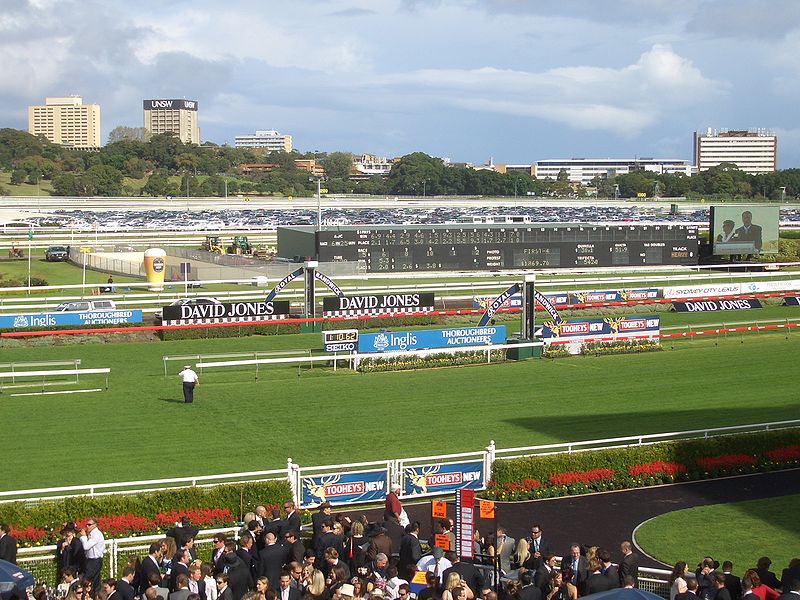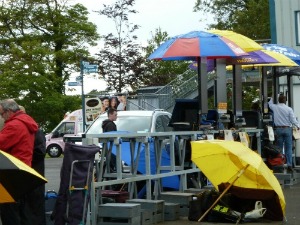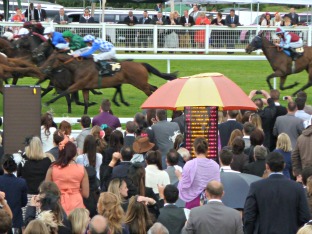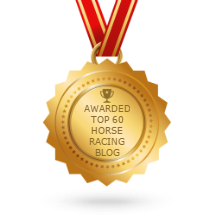How to Bet on Horse Races for Beginners
A guide on how to bet on horse races for beginners:
 Randwick Racecourse
Randwick RacecourseHave you ever felt the adrenaline rush as thoroughbreds thunder down the track? Horse racing is a sport steeped in tradition and excitement, and betting adds another layer of thrill.
This guide is designed specifically for beginners, helping you understand the basics and place your first wager with confidence. Remember, responsible betting is key. Start small, focus on the race's entertainment value, and learn some simple handicapping tips to make informed choices.
Horse racing is a globally popular sport, from Perth to Pakistan with fans worldwide eagerly tuning in to watch thrilling races and place their bets.
From the prestigious Belmont Stakes in the United States to the iconic Royal Ascot in the United Kingdom, horse racing events attract massive viewership and betting activity. The excitement of the sport, combined with the potential for substantial winnings, draws in new fans and bettors every year.
There are, of course, different types of horse racing or ‘codes’ as they are called. In the US you will find mostly flat racing on dirt or turf and also popular is harness racing, in which Standard bred horses pull a two-wheeled cart called a sulky, spider, or chariot.
Standard breds are bred for two specific gaits: trotting and pacing. Trotters move diagonally with their legs – left front leg with right hind leg, then right front leg with left hind leg.
Pacers move laterally with both legs on one side of their body moving together. Races are divided between trotters and pacers, they don't compete against each other.
Some countries such as the UK and Ireland favour jumps races for the winter months when the ground is often too wet for flat racing.
These are known as National Hunt races and Steeple Chases where the horses compete over a course of either hurdles or fences made from brush wood. The most famous of these is the world-renowned Aintree Grand National run over a distance of 4 miles, 2 furlongs and 74 yards (or approximately 6.9 kilometers).
As the sport's popularity grows, so does the interest in betting on horse races. Like football, where fans can find advanced football betting tips online, horse racing fans can access a wealth of resources to guide them in their betting journey.
Various online platforms and betting guides provide valuable insights into horse performance, race conditions, and betting strategies, making it easier for beginners to get started.
With the right information and a bit of luck, betting on horse races can be an enjoyable and rewarding experience.
Basic Bet Types: Win, Place, and Show
Win Bet
A Win bet is the simplest form of horse betting. You pick a horse to finish first in the race. If your horse wins, you win.
The odds for a Win bet are displayed on the tote board and vary greatly depending on the horse's chances. A tote board, also known as a totalisator or totalizator, is a large electronic display board typically found at horse racing tracks and sometimes at charity events like telethons. It serves two main purposes:
- Displaying Betting Odds: In horse racing, the tote board shows the odds for each horse in a race. These odds represent the potential payout you would receive if you place a winning bet on that horse. The odds are constantly updated throughout the day as bets are placed, reflecting the amount of money wagered on each horse. Generally, horses with a higher chance of winning will have lower odds, while those considered longshots will have higher odds and potentially bigger payouts.
2. Showing Race Results and Payouts: Once the race is over, the tote board will display the official results, including the winning horse, any placings (second, third), and sometimes even show (fourth). For winning bets, the tote board might also show the payout amount based on the odds and the total amount wagered on each horse.
 Sligo Bookmakers in Southern Ireland
Sligo Bookmakers in Southern IrelandHere's an analogy to understand how the tote board works with odds:
Imagine a pool of money from all the bets placed on a particular race. The tote board reflects how this pool will be distributed among winning tickets. If a horse has a lot of money wagered on it (low odds), there's less money to share amongst winners, resulting in a smaller payout.
Conversely, if a horse is a longshot (high odds) and wins, the pool is divided amongst fewer winning tickets, leading to a potentially larger payout.
Place Bet
A Place bet allows for a bit more flexibility. You bet on a horse to finish either first or second. The payout is usually lower than a Win bet, but your chances of winning are higher.
Show Bet
A Show bet is the easiest of the three basic bets. You bet on a horse to finish in the top three (first, second, or third). The payout is the smallest but also the easiest to win. Show bets are ideal for beginners who want to minimize their risk.
Across the Board
Betting "across the board" means placing a Win, Place, and Show bet on the same horse. This type of bet covers all bases and costs three times the base amount. For example, a $2 base bet would cost $6. If your horse finishes in the top three, you collect a payout.
Advanced Bet Types: Exacta and Trifecta
Exacta
An Exacta bet involves picking the top two finishers in a race in the exact order. For instance, a $2 Exacta on horses 1-2 means horse 1 must win, and horse 2 must finish second.
Exacta bets are more challenging than Win, Place, or Show bets but offer higher payouts due to the increased difficulty.
Exacta Box
An Exacta Box allows the top two horses to finish in any order. A $2 Exacta Box with horses 1-2 costs $4 because it covers both possible combinations.
Trifecta
A Trifecta bet is more challenging and involves picking the top three finishers in exact order. This bet offers a higher payout due to its difficulty. Trifecta bets can result in significant payouts, especially if the top three horses include long shots.
 Betting on Royal Ascot Horses
Betting on Royal Ascot HorsesTrifecta Box
A Trifecta Box allows the top three horses to finish in any order. It increases the chances of winning but also increases the cost. For example, a $2 Trifecta Box with three horses costs $12.
Superfecta
For those looking for an even bigger challenge, a Superfecta bet involves picking the top four finishers in exact order. This bet is very difficult to win but offers significant rewards. For example, a $2 Superfecta on horses 1-2-3-4 means horse 1 must win, horse 2 must finish second, horse 3 must finish third, and horse 4 must finish fourth.
Superfecta Box
A Superfecta Box allows the top four horses to finish in any order. This bet can be very costly due to the high number of combinations.
Handicapping: Evaluating Horses
Form and Past Performance
When betting on horses, it's essential to evaluate their past performances. Look at a horse’s previous race results, the track conditions, and the jockey's performance. It can often be found in racing programs or online.
Speed Figures and Class Ratings
Speed figures measure how fast a horse has run in previous races, while class ratings compare the level of competition a horse has faced. These metrics can help you assess the potential performance of horses in a race.
Pace Figures
Pace figures indicate the likely speed of the race. Understanding these can help you predict which horses will likely set the pace and which might finish strong.
How to Bet on Horse Races for Beginners Conclusion
Now that you're equipped with the basics of horse racing bets and handicapping, you're ready to experience the thrill of the track! Remember, responsible betting is key.
Start small, focus on enjoying the race itself, and gradually incorporate handicapping strategies as you gain confidence. With a little knowledge and a touch of luck, you might just find yourself cheering your chosen horse to victory.
Most importantly, have fun and enjoy the excitement of this unique sport!
The Popular Daily Lay Tips UK/IRE £5 per month
Subscribe Below
French Lay Racing Tips for £5 per month
Subscribe below
Your second block of text...


Returns Policy: Once a customer has agreed to pay for a product or service no returns will be permitted or payments returned.
All PayPal transactions are subject to the PayPal Privacy Policy
Privacy Policy: Personal details provided to this site by an individual may be shared with third parties unless requested otherwise.
Above policies updated 15 March 2018





